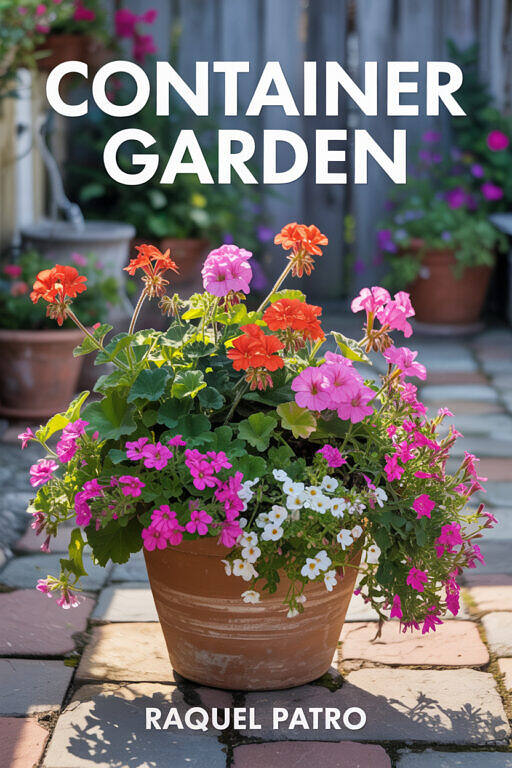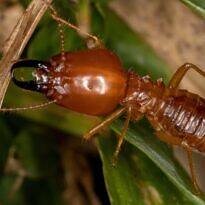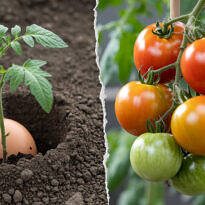Starting in Organic Gardening seems to be a journey of extreme satisfaction. Harvesting the fruits of the earth without using chemicals or poisons is undoubtedly a tempting idea.
But are you ready for this challenge?
Depending on your point of view and skill level, practicing gardening through ecological, sustainable, and organic practices can be a relaxing hobby or a frustrating and difficult idea to implement. Organic gardening is not complicated, but it requires some important care so you don’t despair along the way and give in to the temptation to solve problems in the conventional way.

But I’m here to help you, and I’m sure the tips below will help you approach organic gardening in a simpler way:
1. Start with the Soil:
A garden requires neutral soil for plants to grow properly, effectively absorbing nutrients. Consider getting a soil analysis from an agronomist. A sample from your land will be sent to a specialized lab for analysis, giving you the chance to amend the soil before planting.
Remember that limestone and rock powders are allowed in organic farming. Limestone neutralizes acidic soil, preparing it for organic fertilizers and plants.

2. Plant bulbs
For flowers in spring, summer, fall, and winter, remember to plant some bulbs. Bulbs are hardy, perennial plants that will bloom year after year, avoiding frequent replanting and flower shop purchases. Combine different species for bulbs that flower at different times, keeping your garden surprising and sustainable all year long.

3. Aeration is the key
Avoid using pesticides; keep your plants dry and well-ventilated daily. Check for stagnant water in pots and other conditions favoring fungus growth. Fungi are common adversaries, causing plant diseases. Good plant ventilation, avoiding leaf wetness, and well-drained pots and substrates can help prevent the need for fungicides. Also, ensure your plants receive proper lighting (suited to each species) and maintain balanced, quality fertilization. Healthy plants resist pest attacks better.
4. Add mulch
Add a generous layer of straw, sawdust, or dry leaves over the soil in your garden beds. This mulch keeps the soil around plants moist for longer periods and prevents weed growth. Be cautious not to let these coverings touch the stems of your vegetables. With this care, your plants will receive more water and nutrients, and you’ll spend less time dealing with invasive plants.

5. Stop resisting weeds
That’s right, learn about UFA (Unconventional Food Plants) and discover a new world of delicious, nutritious, and healthy salads that are growing spontaneously in your garden. You’ll lose the stressful activity of fighting weeds and gain organic allies for your health. It’s all a matter of perspective. Soon, you’ll be intentionally planting them in your garden for their natural flavors and colors.
6. Take advantage of gardening as a leisure and relaxation activity
Everyone seeks ways to destress and have fun. Among many options, gardening is one of the most pleasant and easy to start. However, it requires a small investment in plants and time to learn, but the returns are tremendous. Your beautiful, lush, organic garden will allow you to harvest peace of mind and good health.
7. Cut instead of pluck
During scorching midday heat, many plants are delicate, making them more susceptible to damage. Instead of twisting and pulling tomatoes, beans, and other fruits, opt to cut them off. This way, you’ll cause less harm to plants, allowing them to remain productive. Cut tissues heal quickly, but bruised, stretched, and crushed tissues end up rotting, serving as entry points for opportunistic agents like fungi and bacteria.

8. Rustify as early as possible
Once your seeds germinate, they don’t need as much warmth as before. To prevent shocks to your plants, start opening the greenhouse or packaging you used to keep them warm. If you use plastic, begin removing it as soon as they sprout. The sooner you do this, the better, as they’ll adapt to external conditions more quickly and have a better chance of survival when transplanted. Keep an eye on your seeds to know when to do this.
Organic gardening is entirely possible but can be more intricate than it seems. Since you can’t use poisons or chemical fertilizers, you’ll need dedication and resilience in the face of potential problems. It requires patience and ongoing effort, but having an organic garden is worth it for numerous reasons. By applying these tips, you’re embarking on a beautiful journey with organic gardening. You’ll find it rewarding and fulfilling.







